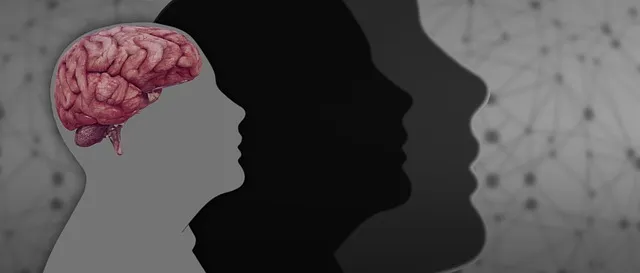The Kaiser Permanente mental health facility in Lafayette distinguishes itself through its culturally sensitive approach, prioritizing understanding and respect for diverse patient backgrounds. By integrating cultural competency into every aspect of care, they ensure tailored services that adapt to individual needs. Key initiatives include mental health awareness programs, emotional intelligence training for staff, and multilingual resources. This focus leads to improved patient outcomes, fostering trust, open dialogue, and better emotional well-being for a diverse population served by the Kaiser Permanente mental health facility Lafayette.
Cultural sensitivity is an essential aspect of providing effective mental healthcare, especially in diverse communities. This article explores strategies for enhancing cultural competence within psychiatric practices, using the Kaiser Permanente model as a standout example. We delve into the challenges and best practices at the Lafayette Kaiser Permanente mental health facility, highlighting how cultural awareness can transform patient outcomes. By understanding various cultural contexts, healthcare providers can offer more personalized and inclusive care.
- Understanding Cultural Competence in Mental Healthcare
- The Kaiser Permanente Approach: A Model for Cultural Sensitivity
- Challenges and Best Practices at the Lafayette Facility
- Enhancing Patient Outcomes Through Cultural Awareness
Understanding Cultural Competence in Mental Healthcare

In the diverse communities served by Kaiser Permanente mental health facilities like the one in Lafayette, cultural sensitivity is more than just a best practice; it’s essential for providing effective care. Cultural competence involves understanding and respecting the unique beliefs, values, and practices that shape individuals’ emotional well-being promotion techniques and stress management approaches. At these facilities, professionals are trained to recognize and navigate the intricate web of cultural factors that can influence mental illness stigma reduction efforts and patient outcomes.
By embracing a culturally sensitive approach, Kaiser Permanente mental health teams ensure that services are tailored to meet the specific needs of every patient. This involves adapting therapeutic methods, communication styles, and even the physical environment to reflect the cultural backgrounds of those seeking help. Such an inclusive practice not only enhances the quality of care but also fosters trust and encourages open dialogue, ultimately contributing to improved mental health outcomes in a diverse population.
The Kaiser Permanente Approach: A Model for Cultural Sensitivity

The Kaiser Permanente mental health facility in Lafayette has been hailed as a model for cultural sensitivity in healthcare practice. This approach prioritizes understanding and respecting diverse cultural backgrounds, beliefs, and values among patients and staff. By integrating cultural competency into every aspect of care, Kaiser Permanente ensures that mental wellness services are accessible, effective, and tailored to individual needs. The organization provides comprehensive Crisis Intervention Guidance, which equips both patients and professionals with tools to navigate and mitigate severe emotional distress, particularly in the context of cultural nuances.
Risk Management Planning for Mental Health Professionals is another key component of their strategy. Kaiser Permanente acknowledges that cultural sensitivity goes hand-in-hand with effective risk management, fostering a safe and supportive environment where mental health practitioners can do their best work. This holistic approach not only enhances patient outcomes but also contributes to the overall well-being of mental health professionals by reducing potential cultural barriers and promoting positive interactions within the community.
Challenges and Best Practices at the Lafayette Facility

The Kaiser Permanente mental health facility in Lafayette faces unique challenges when providing services to a diverse patient population. Cultural sensitivity is paramount, as the team navigates various ethnic and socio-cultural backgrounds, each with distinct beliefs and expectations surrounding mental health. For instance, some patients may approach therapy from a traditional perspective, valuing family dynamics and community support, while others might prefer more individualistic Western therapeutic models.
To overcome these challenges, the Lafayette Facility has implemented several best practices. They emphasize mental health awareness programs tailored to different cultural groups, fostering an environment of understanding and trust. The integration of emotional intelligence training for staff enables them to connect with patients on a deeper level, recognizing and respecting individual differences. Additionally, they offer multilingual resources and interpreters to facilitate effective communication, ensuring that every patient receives compassionate, culturally competent care. These initiatives showcase the facility’s commitment to providing inclusive mental healthcare services, addressing not just depression prevention but also the broader spectrum of emotional well-being.
Enhancing Patient Outcomes Through Cultural Awareness

At Kaiser Permanente mental health facility Lafayette, cultural awareness plays a pivotal role in enhancing patient outcomes. Understanding and respecting diverse cultural backgrounds, beliefs, and values allows healthcare professionals to provide tailored care that addresses not just symptoms but also the unique experiences and needs of each individual. This approach fosters trust and cooperation between patients and providers, leading to better engagement and adherence to treatment plans.
By integrating cultural sensitivity into mental healthcare practice, facilities like Kaiser Permanente Lafayette can offer anxiety relief and support emotional regulation more effectively. Culturally competent care ensures that patients from various ethnic, racial, and socioeconomic backgrounds receive services that are sensitive to their specific needs, thereby improving overall wellness outcomes.
Cultural sensitivity in mental healthcare is no longer a consideration, but an imperative. As evidenced by the successful implementation of the Kaiser Permanente approach at the Lafayette facility, prioritizing cultural competence leads to enhanced patient outcomes. By understanding and respecting diverse cultural backgrounds, mental health professionals can create inclusive environments that foster trust and effective treatment. The strategies outlined in this article, grounded in real-world examples from the Kaiser Permanente mental health facility in Lafayette, offer a roadmap for healthcare providers to navigate the challenges of cultural sensitivity, ultimately revolutionizing patient care.






